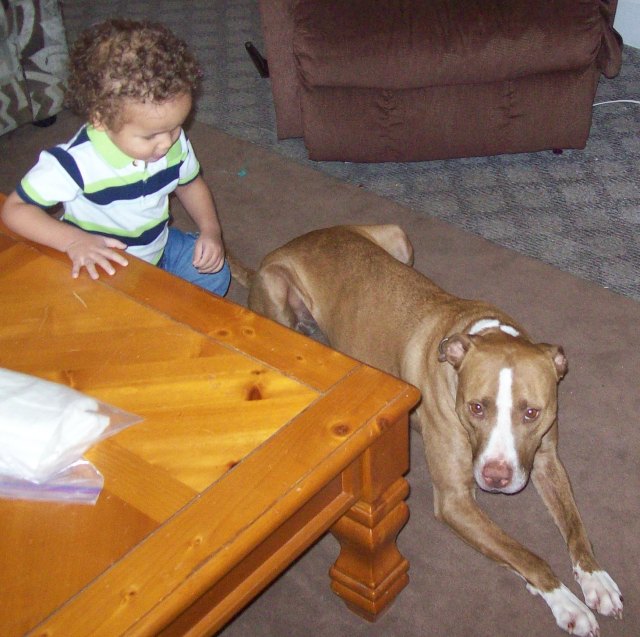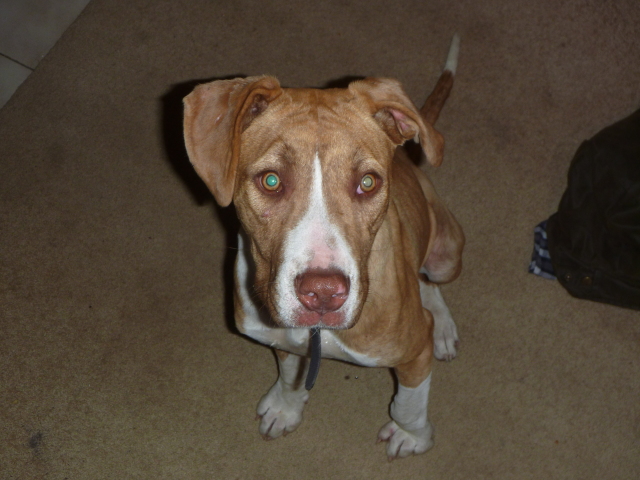QuestionMy 3 year old Dachshund has developed an obsession with licking, ...rugs, furniture, bedding - any fabric. She then drinks more due to dry tongue and has trouble holding her bladder with all the liquid.
The vet tested her and found no medical issues. Her urine is very diluted from drinking, but her kidneys tested normal.
This must be a behavioral problem. Do you have any ideas on how to stop the licking?
Thanks!
AnswerHi Bob,
You didn't say how many hours a day your dog is left alone.
Your dog might be suffering boredom, and have pent-up energy and lack of sufficient mental challenge. He may not be receiving a good, disciplined, focused walk each day, such as forty-five minutes on a heel. For some high energy dogs, one walk or run is not enough, and your dog simply might be one of them. He needs an outlet, so he makes one for himself. He has discovered a release by constant licking and dog chewing.
Increasing the amount of exercise your dog receives each day would be a good place to start. When animals (and people) exercise, nature's own "drugs" are released. These are called endorphins; they create a feeling of well-being which is exactly what your dog needs right now.
Lots of extra love and affection are in order. Try your best to ignore the licking. If you yell at your dog to stop, this will only make him feel more stressed, which can cause more licking. Instead, don't react to the licking. Call him over to you, brush him, scratch his back or behind his ears, and let him know all is well. I think that in time, his licking will subside and he'll be back to his previous, lovable self.
If the licking really does seem excessive to you, your vet or a veterinary behaviorist may be able to help design a behavioral modification program and medical therapy to help alleviate the condition.
In some dogs this is considered to be an obsessive/compulsive behavior and may respond to medications for these disorders, such as Anafranil or Prozac. Your vet would be able to help determine if these medications are appropriate.
Best of luck,
Patti

 cockapoo agression
Question
Pets11.jpg
We have had our Cockapoo (Tyson) si
cockapoo agression
Question
Pets11.jpg
We have had our Cockapoo (Tyson) si
 my older dog is house broken but not
QuestionQUESTION: I got a 9 yr old dog from a shelter a
my older dog is house broken but not
QuestionQUESTION: I got a 9 yr old dog from a shelter a
 Miniature Schnauzer Flaky Skin
Question
Cicero
My 7-year-old miniature schnauzer Cicer
Miniature Schnauzer Flaky Skin
Question
Cicero
My 7-year-old miniature schnauzer Cicer
 Malnurished Bull Mastif x Great Dane ;
Question
Sticks
Hi,
Ive recently, (the last 24 hours) b
Malnurished Bull Mastif x Great Dane ;
Question
Sticks
Hi,
Ive recently, (the last 24 hours) b
 new puppy
Question
bella
I adopted a puppy from the humane
new puppy
Question
bella
I adopted a puppy from the humane